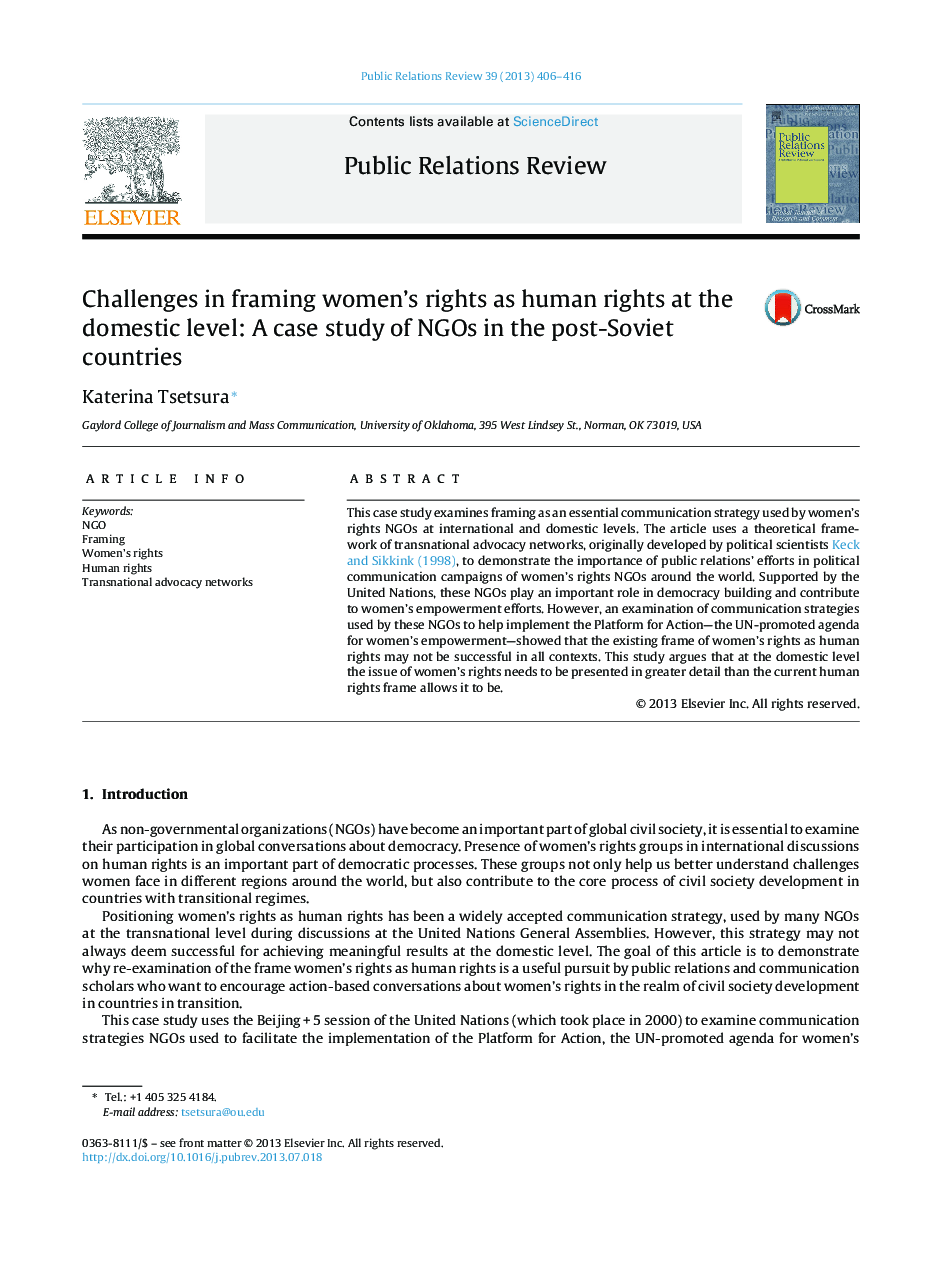| Article ID | Journal | Published Year | Pages | File Type |
|---|---|---|---|---|
| 139103 | Public Relations Review | 2013 | 11 Pages |
This case study examines framing as an essential communication strategy used by women's rights NGOs at international and domestic levels. The article uses a theoretical framework of transnational advocacy networks, originally developed by political scientists Keck and Sikkink (1998), to demonstrate the importance of public relations’ efforts in political communication campaigns of women's rights NGOs around the world. Supported by the United Nations, these NGOs play an important role in democracy building and contribute to women's empowerment efforts. However, an examination of communication strategies used by these NGOs to help implement the Platform for Action—the UN-promoted agenda for women's empowerment—showed that the existing frame of women's rights as human rights may not be successful in all contexts. This study argues that at the domestic level the issue of women's rights needs to be presented in greater detail than the current human rights frame allows it to be.
